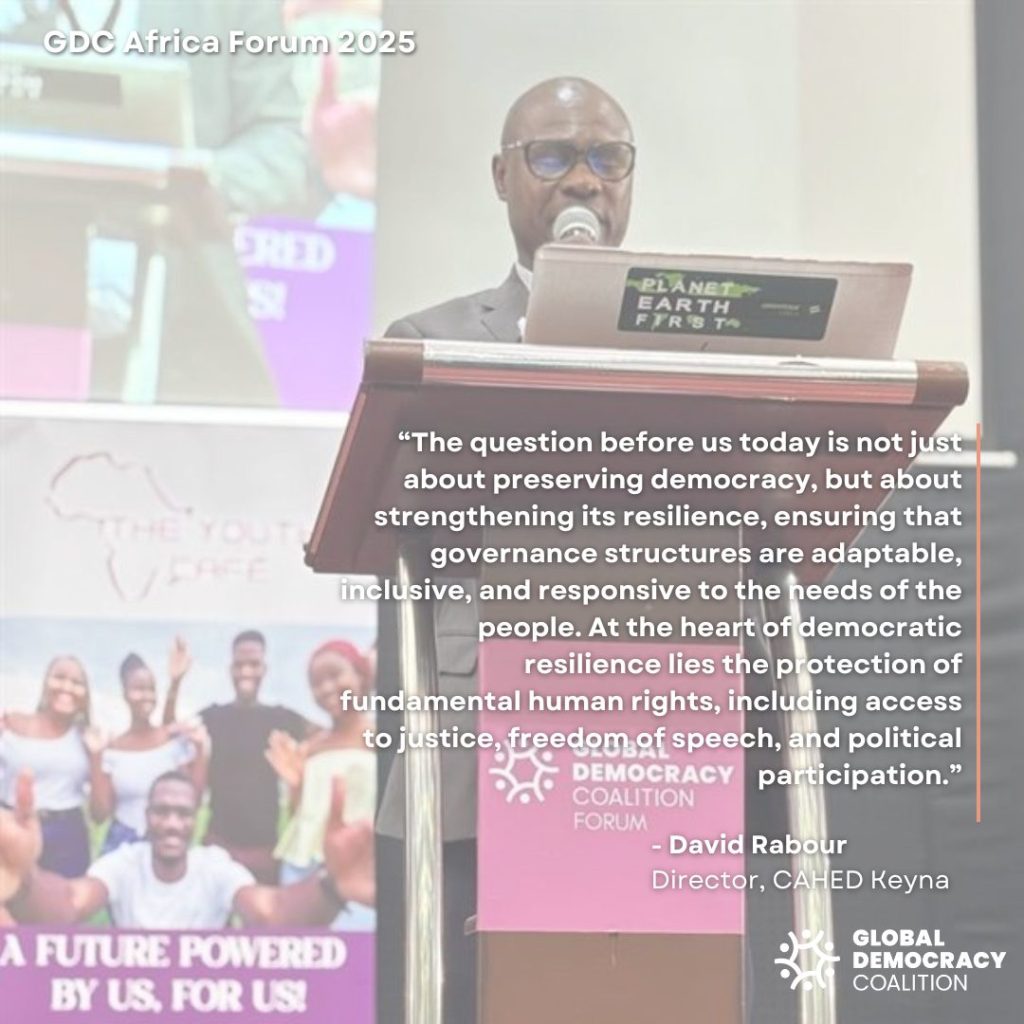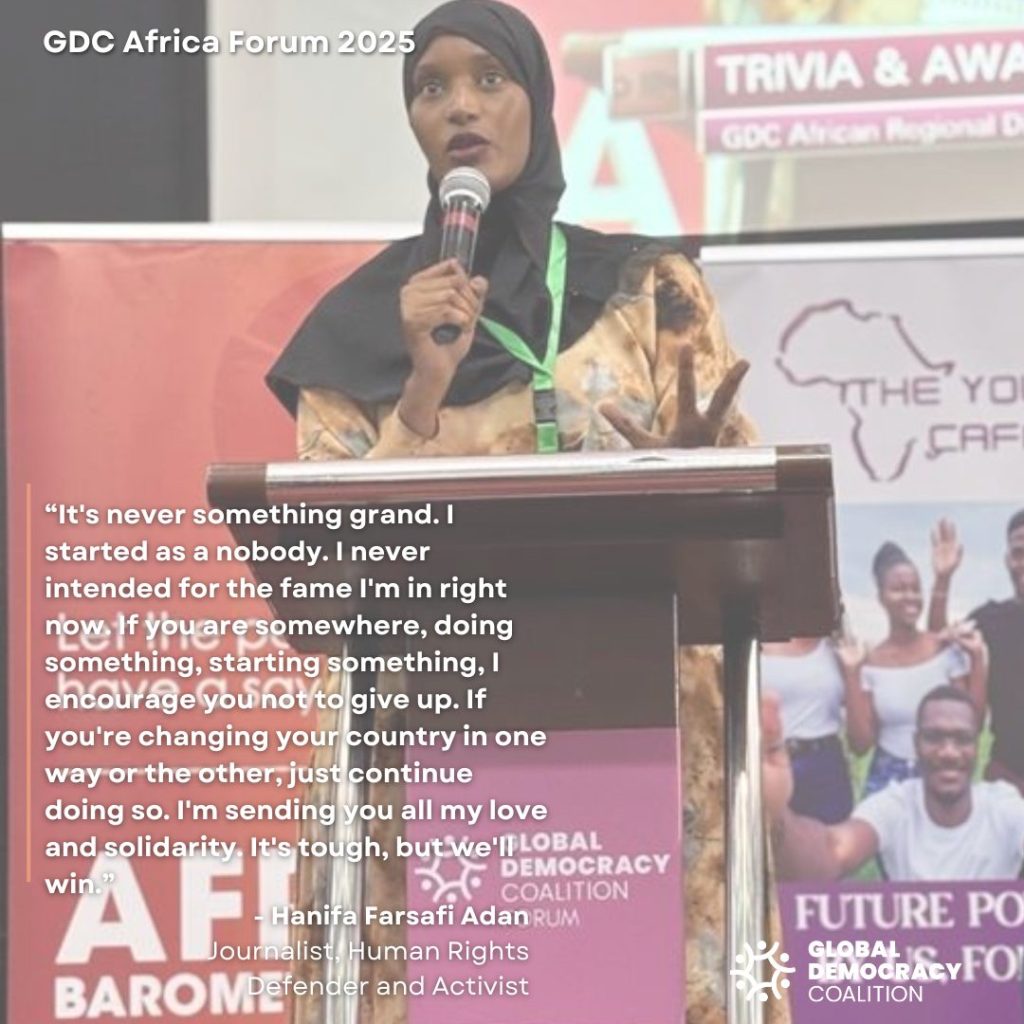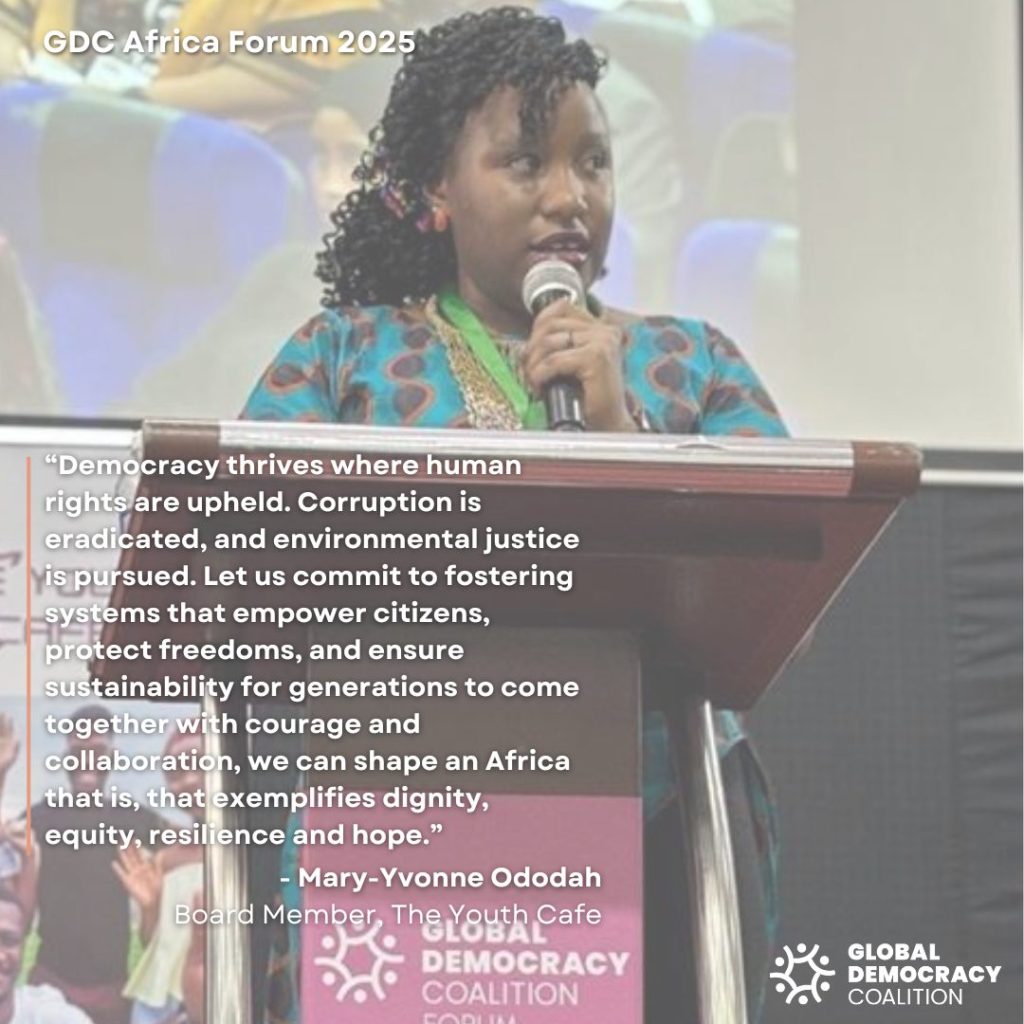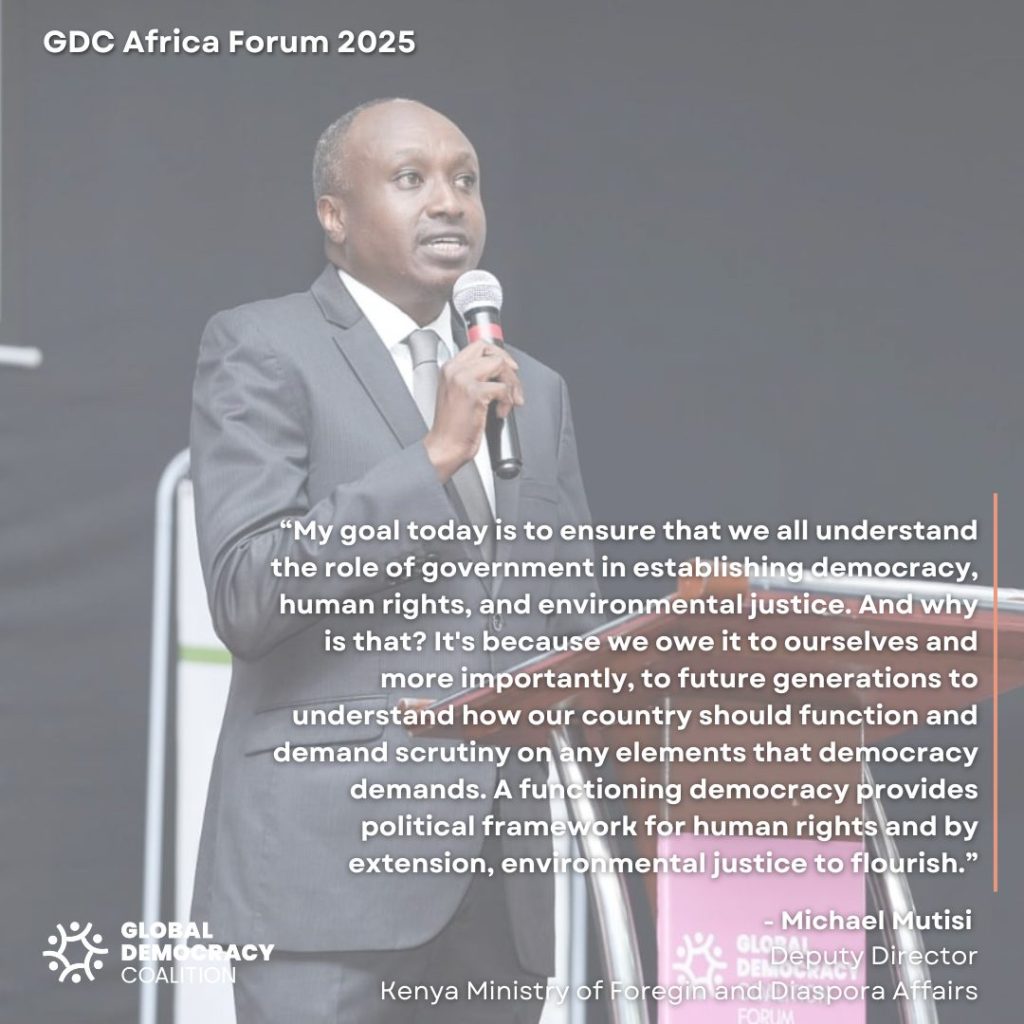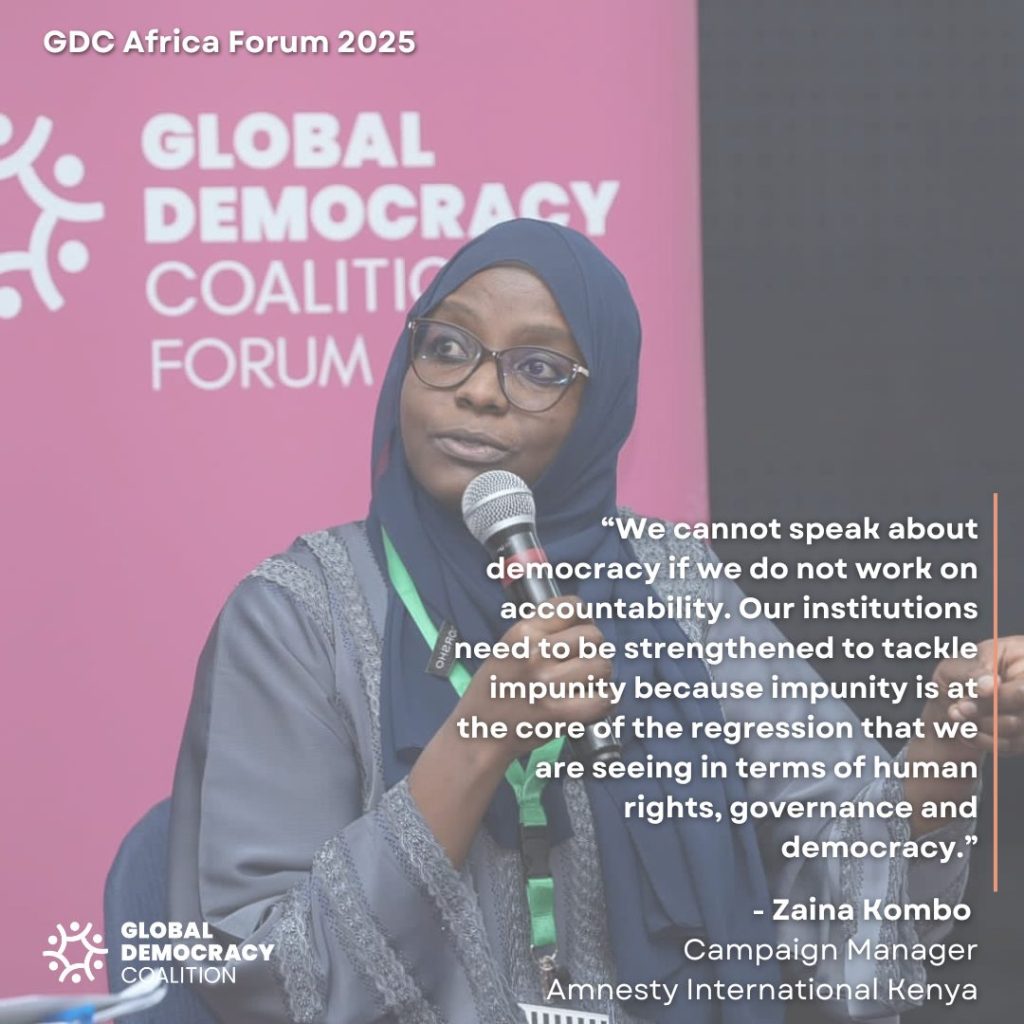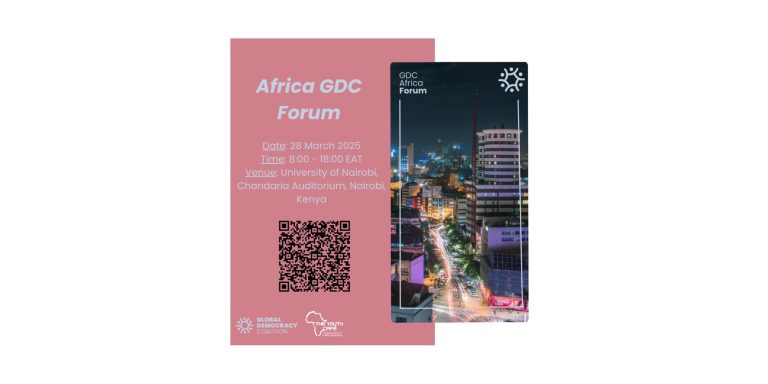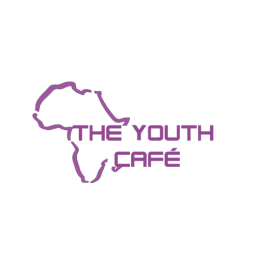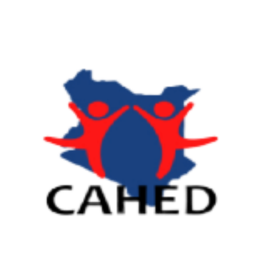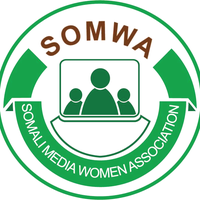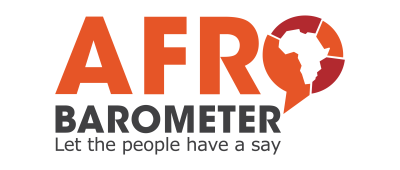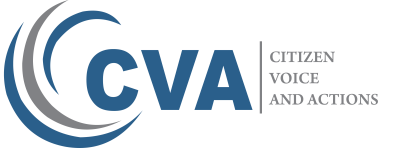Theme: Advancing Democratic Resilience at the Intersection of Human Rights and Environmental Justice
Date: 28 March 2025
Location: Daystar University, Valley Road, Nairobi, Nairobi County, Kenya
Host: The Youth Café, CAHED Kenya, CVA Rwanda, Afrobarometer, and SOMWA
Overview
The Global Democracy Coalition (GDC) African Regional Forum 2025, organized by The Youth Cafe, is a flagship event focused on addressing the intersection of democracy, human rights, and environmental justice in Africa. This regional dialogue aimed to explore how democratic governance can effectively tackle environmental challenges while upholding human rights, emphasizing the pivotal role of youth leadership and grassroots activism.
As Africa faces disproportionate impacts from climate change and environmental degradation, this forum spotlighted the urgent need for democratic resilience and renewal to combat these crises. The event brought together policymakers, civil society leaders, youth activists, and international organizations to share best practices, foster collaboration, and craft actionable solutions for democratic and environmental sustainability.
The sub-theme, “Combating Corruption as a Catalyst for Democratic Renewal and Environmental Resilience,” underscored the critical need to address corruption as a systemic barrier to governance and justice.
The forum featured a combination of keynote speeches, panel discussions, and interactive breakout sessions, culminating in the development of practical recommendations to strengthen democratic governance across Africa.
Introduction
Africa stands at a critical juncture, grappling with the dual challenges of promoting democratic governance and addressing socio-environmental injustices. Systemic corruption remains a significant hurdle, with 64% of Africans perceiving it as worsening, according to Transparency International’s 2023 Global Corruption Barometer; notable cases include Zimbabwe’s “Gold Mafia” scandal and South Africa’s state capture revelations.
Human rights violations are equally alarming, exemplified by violent crackdowns on Generation Z-led protests against Kenya’s controversial Finance Bill and the tragic rise of femicide in South Africa, where 11 women are murdered daily. Meanwhile, environmental degradation compounds these challenges, with illegal oil refining in Nigeria’s Niger Delta destroying ecosystems and prolonged drought in the Horn of Africa leaving over 20 million people food insecure. These interconnected issues threaten democratic progress, demand urgent reforms, and call for concerted efforts from governments, civil society, and international partners.
The human rights landscape in Africa continues to witness setbacks. Reports by organizations such as Amnesty International highlight rising concerns around shrinking civic spaces, suppression of freedoms, and increasing instances of electoral violence. For example, in 2023, Sudan experienced widespread human rights violations during internal conflict, displacing over 3.5 million people, while protests against authoritarianism in Zimbabwe and Guinea were met with heavy crackdowns. The intersection of governance and human rights remains clear: corruption erodes trust in public institutions and limits access to justice, education, and healthcare, affecting marginalized populations most acutely.
Environmental justice presents another critical frontier for Africa’s democratic future. Climate change disproportionately impacts African nations, which contribute less than 4% to global emissions but face devastating consequences such as droughts, floods, and food insecurity. For instance, recent droughts in the Horn of Africa affected over 36 million people, while mining activities in countries like Nigeria and the Democratic Republic of Congo have led to environmental degradation and displacement of indigenous communities.
However, progress is underway. Civil society organizations, youth movements, and local communities are leading the charge for change. The African Climate Summit in 2023 emphasized regional ownership of climate solutions, and Kenya’s landmark Climate Change Act highlights steps toward environmental accountability. Similarly, community-led movements like South Africa’s “Right2Know” campaign and Kenya’s recent grassroots anti-corruption protests demonstrate the region’s resilience.
The Youth Café (TYC) has been a steadfast advocate for human rights and environmental justice across Africa, driving impactful programs that empower youth and foster sustainable practices. Through Intergenerational Dialogue programs, TYC has amplified youth voices in decision-making processes, while its environmental campaigns promote actionable solutions to climate challenges.
Despite progress, African youth face persistent barriers, including limited access to political processes, economic instability, and restrictive laws curbing activism. These challenges, however, present opportunities for transformative change. With Africa’s rapidly growing youth population, investments in education, leadership development, and digital literacy can unlock their potential as catalysts for democratic resilience.
Key partners such as Afrobarometer contribute data-driven insights on governance, enabling advocacy to address systemic issues. Organizations like SOMWA and CAHED tackle gendered inequalities and community-specific challenges, while the United Nations Office on Drugs and Crime (UNODC) strengthens governance by addressing corruption and organized crime. Together, these entities exemplify the power of collaboration, innovation, and inclusion in building transparent democracies.
The GDC Africa Regional Forum underscored that inclusive governance models integrating youth voices are essential for advancing democratic renewal. Digital platforms and intergenerational dialogues can bridge gaps, enabling youth to hold leaders accountable and champion environmental and social justice. The GDC Africa Forum offered an invaluable platform to harness these opportunities, promoting youth-led advocacy and action in the pursuit of stronger, more inclusive democracies.
Against this backdrop, the Global Democracy Coalition Africa Regional Forum 2025 sought to tackle corruption as a root cause undermining democratic resilience and human rights, while positioning environmental justice as a vital priority. The forum facilitated inclusive conversations, generate actionable strategies, and inspire collaborative efforts to create a more resilient, just, and sustainable Africa.
Programme:
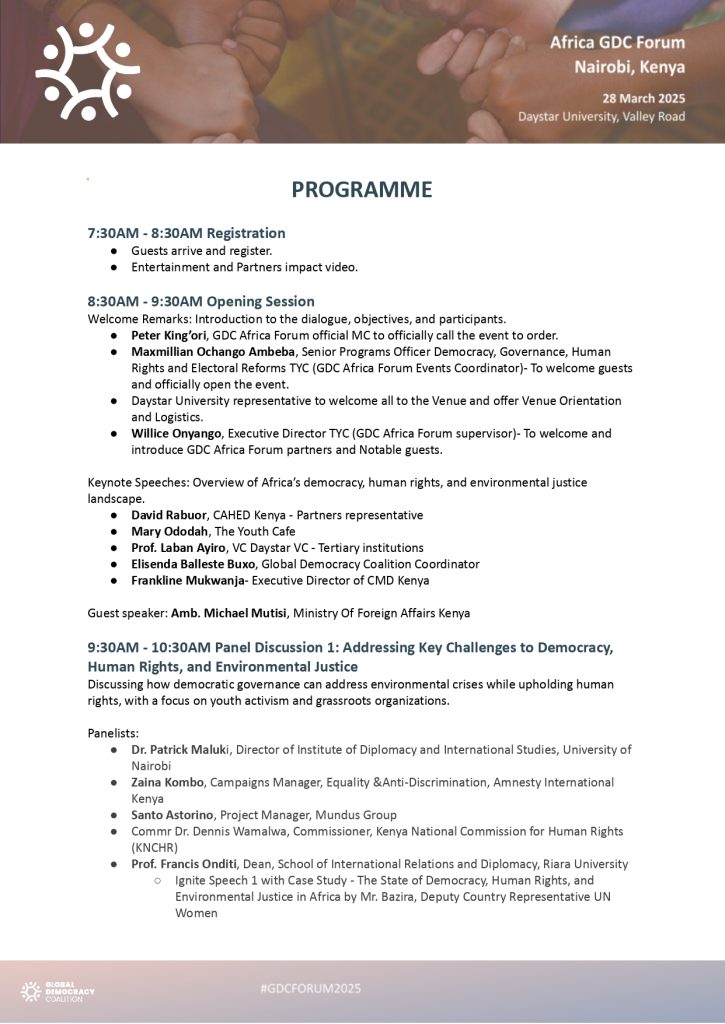
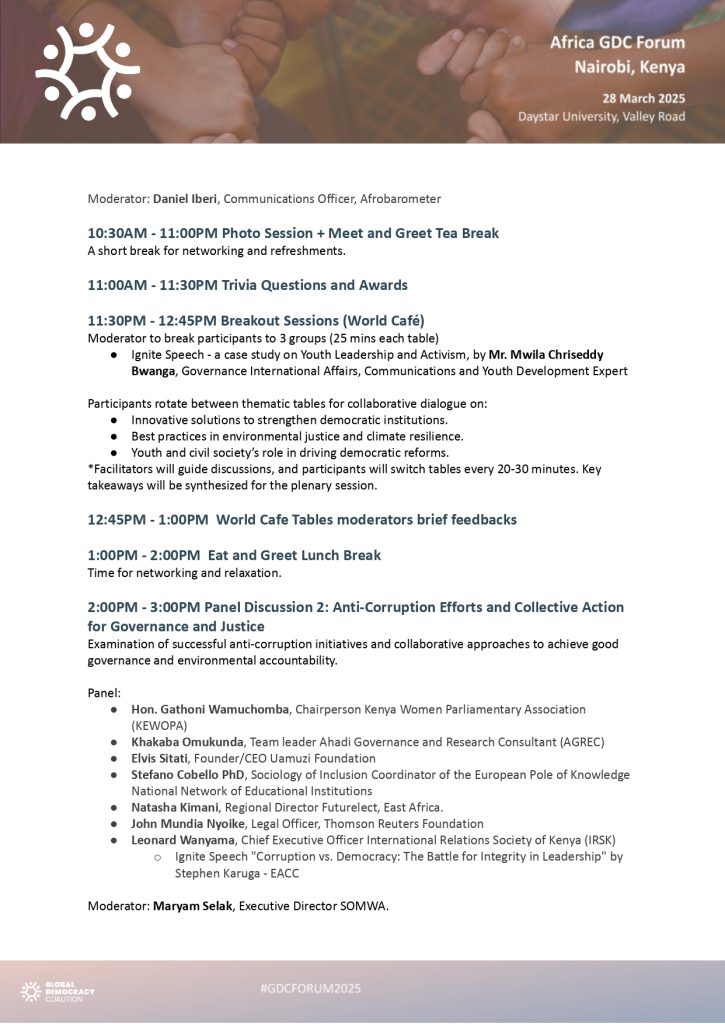
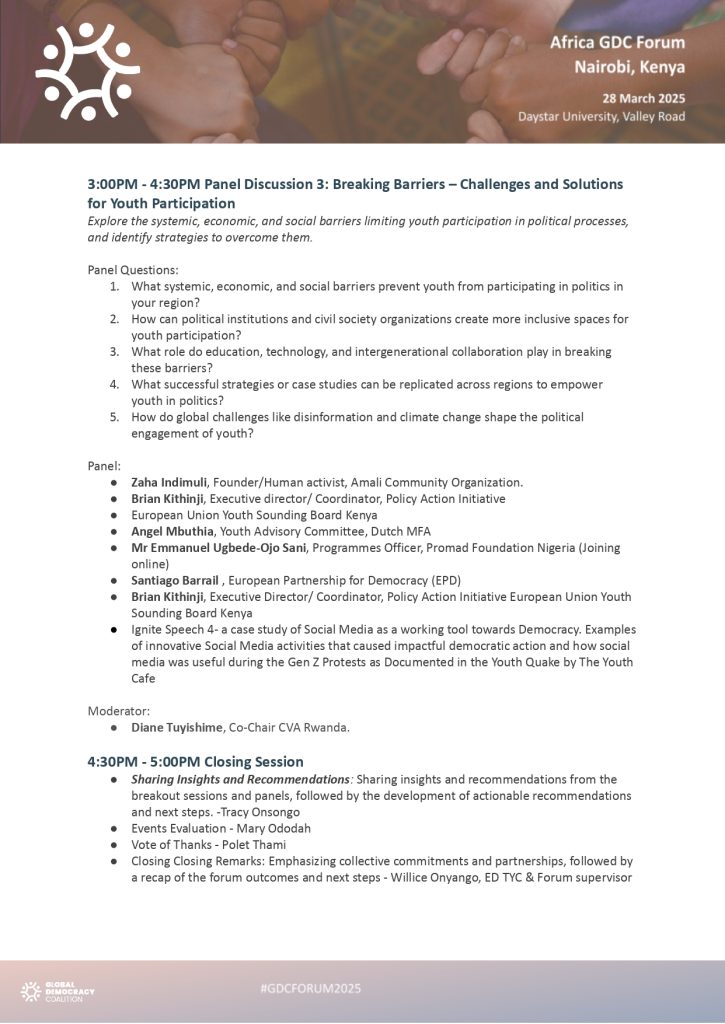
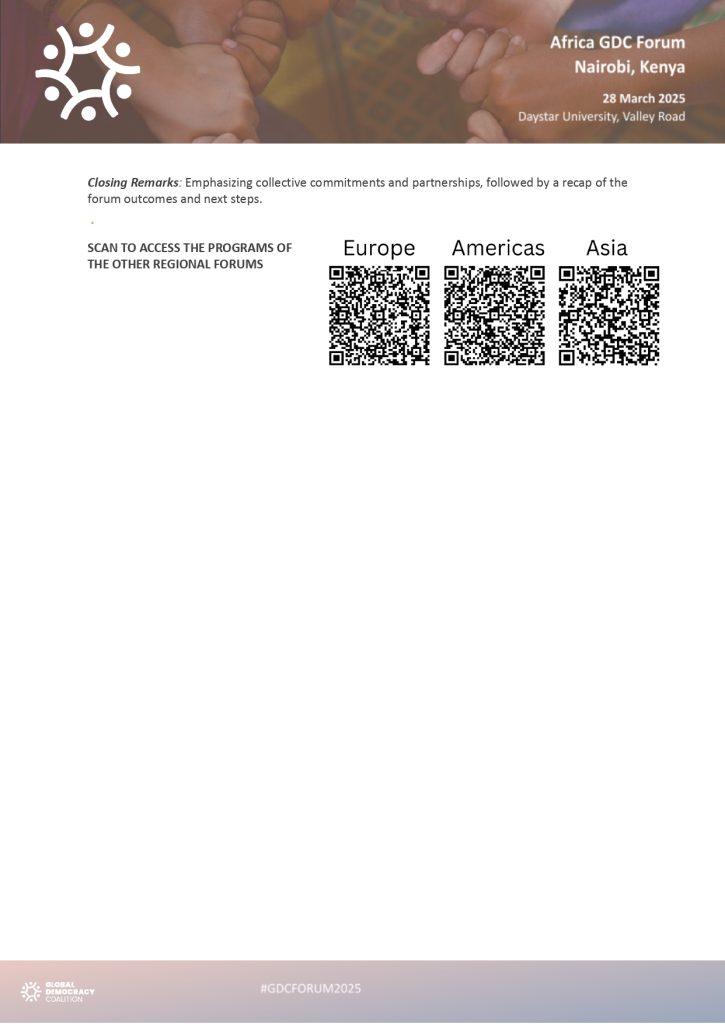
Watch the full forum here:
Expected Outcomes
- Actionable Recommendations: Development of regionally adaptable strategies to combat corruption, strengthen democratic institutions, and enhance environmental resilience.
- Youth Leadership Recognition: Highlighting youth-led initiatives and grassroots movements as models for democratic and environmental innovation.
- Cross-Sector Collaboration: Encouraging partnerships between governments, civil society, and youth organizations to drive collective action.
- Capacity Building: Equipping participants with tools and resources to address challenges and implement solutions in their local contexts.
This event represented a vital step in empowering Africa’s youth and fostering democratic renewal, environmental justice, and human rights in an increasingly complex global landscape.
Recap:
